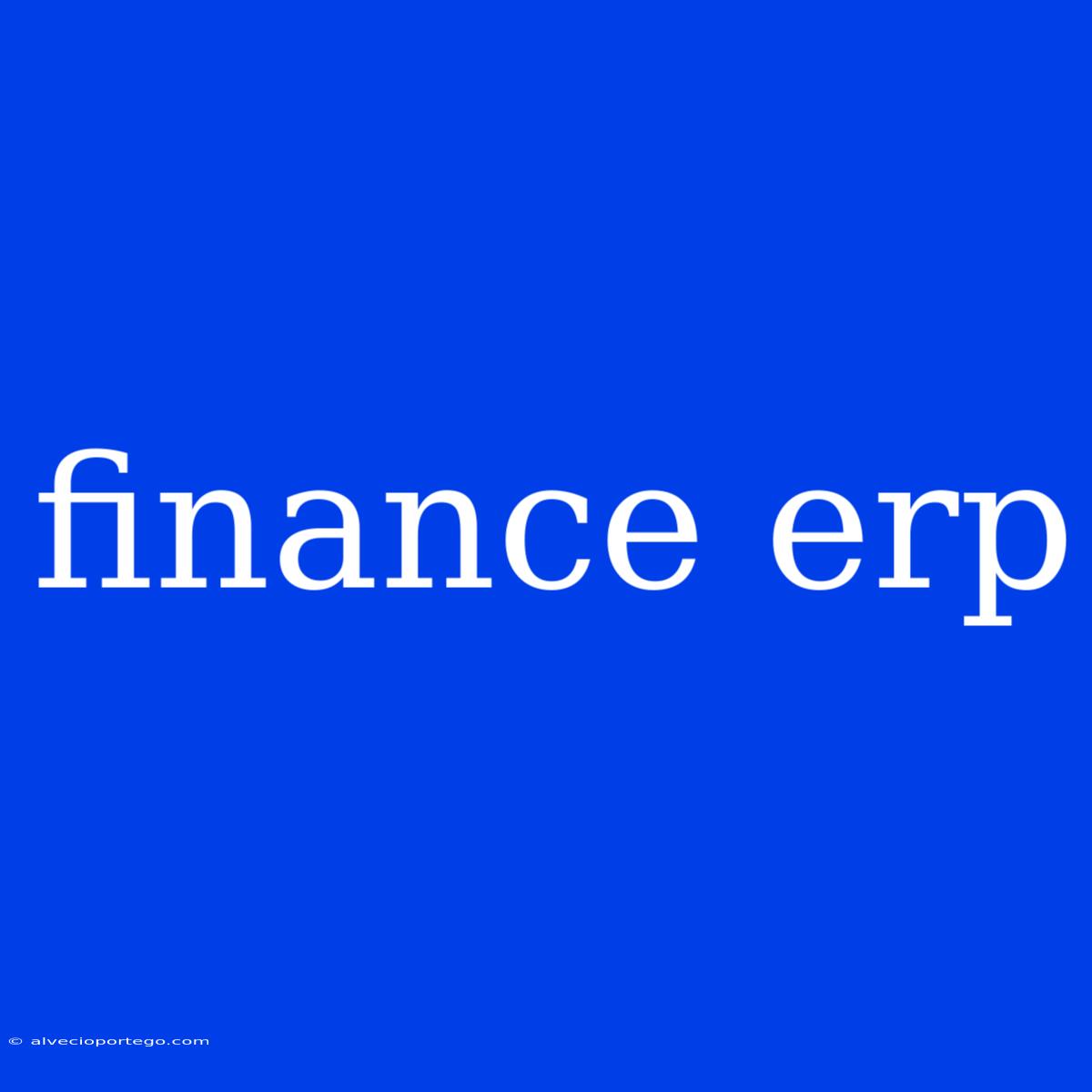Finance ERP: Streamlining Your Financial Operations
Finance ERP (Enterprise Resource Planning) systems are designed to centralize and automate various financial processes within a company, offering a holistic view of financial data and improving efficiency. These systems can manage a wide range of functions, from accounting and budgeting to financial reporting and treasury management.
Key Benefits of Finance ERP:
1. Improved Efficiency and Automation:
- Streamlined Processes: Automating manual tasks like data entry, invoice processing, and reconciliation frees up valuable time for more strategic financial analysis.
- Reduced Errors: With automated workflows, the risk of human errors is minimized, leading to accurate financial data.
- Real-Time Insights: Access real-time financial information, allowing for better decision-making and improved financial control.
2. Enhanced Visibility and Control:
- Centralized Data: All financial information is stored in a single system, providing a comprehensive view of the company's financial health.
- Improved Reporting: Generate customizable reports, dashboards, and key performance indicators (KPIs) to track financial performance and identify areas for improvement.
- Increased Transparency: With clear and accurate data, decision-makers can gain better insight into the financial implications of their choices.
3. Better Collaboration and Communication:
- Shared Platform: Finance ERP systems facilitate collaboration among different departments, including finance, sales, and operations.
- Improved Communication: Seamless information sharing ensures everyone involved in financial operations is on the same page.
- Increased Accountability: Clear responsibilities and audit trails improve accountability across the organization.
4. Enhanced Security and Compliance:
- Data Protection: Secure systems protect sensitive financial data from unauthorized access.
- Regulatory Compliance: Meet industry regulations and standards with built-in compliance features and automated reporting.
5. Increased Scalability and Flexibility:
- Adaptable to Growth: Finance ERP systems can adapt to evolving business needs and accommodate future growth.
- Customization Options: Customize the system to fit specific industry requirements and business processes.
Key Features of Finance ERP Systems:
- General Ledger (GL): Tracks all financial transactions and balances, providing a comprehensive overview of financial position.
- Accounts Payable (AP): Automates invoice processing, payment scheduling, and vendor management.
- Accounts Receivable (AR): Manages customer invoices, payments, and credit management.
- Budgeting and Forecasting: Supports budgeting, financial planning, and forecasting, enabling proactive financial management.
- Financial Reporting: Generates customizable reports, dashboards, and key performance indicators (KPIs) for analysis and decision-making.
- Treasury Management: Manages cash flow, banking relationships, and investment activities.
Conclusion:
Finance ERP systems offer a comprehensive solution for streamlining financial operations, improving efficiency, and gaining valuable insights into financial performance. By centralizing data, automating processes, and enhancing visibility, these systems empower organizations to make better financial decisions and drive growth.
Note: This article provides general information about Finance ERP systems. Specific features and benefits may vary depending on the chosen software provider and implementation.

